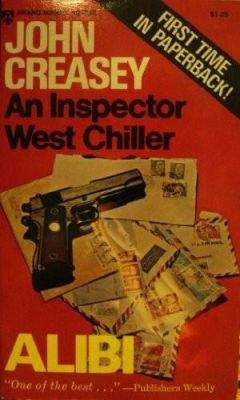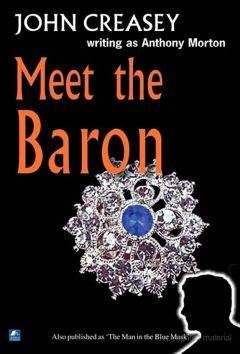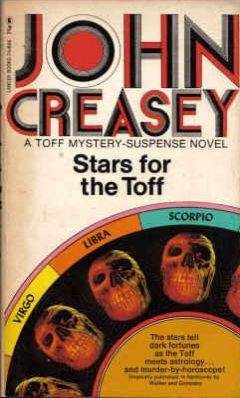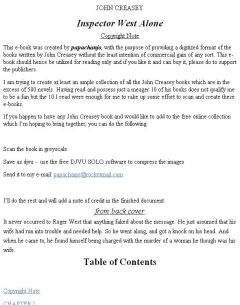John Creasey - Gideon’s Sport
На электронном книжном портале my-library.info можно читать бесплатно книги онлайн без регистрации, в том числе John Creasey - Gideon’s Sport. Жанр: Прочее издательство неизвестно, год 2004. В онлайн доступе вы получите полную версию книги с кратким содержанием для ознакомления, сможете читать аннотацию к книге (предисловие), увидеть рецензии тех, кто произведение уже прочитал и их экспертное мнение о прочитанном.
Кроме того, в библиотеке онлайн my-library.info вы найдете много новинок, которые заслуживают вашего внимания.
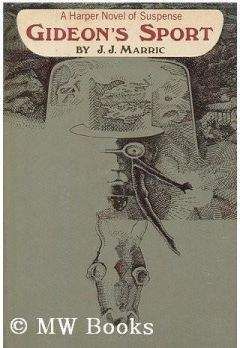
John Creasey - Gideon’s Sport краткое содержание
Gideon’s Sport читать онлайн бесплатно
“That’s it.” Scott-Marie stood up and took off his coat, draping it over the back of an upright chair. He didn’t wear braces, and his crocodile skin belt was firmly drawn about a waist which probably hadn’t expanded two inches in twenty years. “I hadn’t given it more than a passing thought, but the Home Secretary has just telephoned to say that he wants special precautions taken.”
“Do you think he has any particular reason?” asked Gideon.
“He gave me no intimation that he had, and I imagine there is some kind of political motivation. He may simply want to be absolutely sure there is no political demonstration — at least,” Scott-Marie gave his dry smile: “none that gets out of control — during his last few months in office.”
“We haven’t done too badly by him yet.” Gideon smiled just as drily.
“We’ve done very well, which, of course, is no reason why we shouldn’t try to do even better.” Scott-Marie took out his handkerchief, shook it free of its folds, and dabbed his forehead. “You’ve heard no rumours of trouble at Lords?”
Gideon shook his head.
“No. But I’ll send out an instruction for all divisions to report any talk there may be. And I’ll brief the A.B. Division to take special precautions. Just one thing, sir,” he added, thoughtfully.
“What’s that?”
“If the Home Secretary has been given a tip, we should be told what it’s about.”
‘I’ll try to make sure that we are,” promised Scott-Marie. “Are you taking special precautions about any of the other events?”
“So far, routine looks likely to be enough. We’ve reasonable time with over three weeks before the Derby, nearly a week to the game with South Africa. Wimbledon’s almost on us, but the real crowds don’t start for a few days. I’ll watch the situation very closely, sir.”
“I’m sure you will.” Scott-Marie gave another dab at his forehead and one at his neck. “I gather that things in general are fairly quiet?”
“The usual summer calm,” Gideon told him. “It always makes me a bit uneasy. There’s a tendency for everyone to slacken off; especially when we have a warm spell, like this.”
“Well, this is the fifth day. I suppose it will break before the weekend.” Shrugging resignedly, the Commissioner stood up and Gideon, feeling much cooler, moved quickly to help him into his jacket. “Thanks. If I have any further word from the Home Office, I’ll tell you. Let me know at once if you have any word from anyone.”
“I certainly will,” promised Gideon, opening the door. Not even this created a breeze and as Scott-Marie walked off, Gideon closed the door and went slowly to the window.
Scott-Marie always provoked him to thought and speculation. His first thought, now, was: how characteristic of the man to take his jacket off — a simple gesture to show that he also felt the heat of the office, and to put Gideon at his ease. His second thought was that the Home Secretary was probably simply making sure the Yard kept on its toes. Taken by and large this particular incumbent, James Teddall, the Minister in charge of Britain’s home affairs, was a good one. The police, through the Commissioner, were directly responsible to him, and he had never pushed the Force too far: never tried to over-assert his authority. As Gideon had said, the police hadn’t done badly by him yet.
The recollection made him smile. At the beginning of Teddall’s ministry there had been threats of a mammoth, combined, anti-Vietnam war, anti-colour bar, anti-colonialism demonstration. Several organisations had joined forces to concentrate four columns, each over twenty thousand strong, in a march on the time-honoured venue for political demonstrations: Trafalgar Square. There had been a great deal of newspaper panic-publicity — even a demand for troops to be brought in to help maintain order, since troops could be armed more easily than the police.
Scott-Marie had presided at a meeting of the several Commanders of the Metropolitan Force together with their chief assistants and Home Office officials. At the end of the meeting, he had said simply: “I think we can cope, gentlemen. We need a minimum of force and a maximum of good-humour. That is the phrase Commander Gideon used and I cannot think of a better. I shall advise the Home Secretary that we do not need help.”
Coming from a man who had reached high rank in the Army before retiring, the advice had carried great weight. But the Commander of the uniformed branch, an old friend of Gideon, had been very edgy.
“These young devils could cause a lot of trouble, George,” he had growled after the meeting.
“Yes, but they probably won’t.”
“It’s easy for you — we bear the brunt of it!” the Uniform Commander had complained.
“You can have every man in the C.I.D., and you know it,” Gideon had replied. “And with all leave stopped and every man on duty, there shouldn’t be much to worry about.”
But even he had wondered, for there were ugly stories of trained saboteurs and experienced rabble rousers being brought into the country; reports of the planned use by the trouble-makers of tear-gas; even reports of alleged caches of arms with which to fight the police. As the Sunday had drawn near, every senior officer — and probably most men of all ranks in the Force — had been on edge, prepared for near-catastrophe.
The demonstration, a complete success, had caused practically no incidents. A few smoke-bombs, a few marbles tossed under the feet of the police horses, a few isolated struggles — and a great deal of good humour and repartee between demonstrators and the police., Trafalgar Square had looked as if all London had been picnicking there over the weekend and left all their rubbish behind them, but there was no damage. Other demonstrations had followed much the same trend. The police had discovered by trial and error the best way to handle would-be rioters and had also discovered something which had not surprised Gideon at all. Most of the demonstrators were good-natured, decent, reasonable human beings.
His smile faded slowly as he thought beyond this. There was one subject which seemed to bring out the worst in all the people involved, even the decent and the reasonable: that subject was racialism. He himself was emotionally incapable of racial prejudice: to him, a man was simply a man. But many did feel such prejudice and there were times when the bitterness of racial conflict reached an ugly crescendo, in London particularly, over the present social structure of South Africa.
There had been talk of the cricket team from South Africa — with England, Australia and the West Indies, one of the Big Four of the sport — being banned in the way that South Africa had been banned from the Olympic Games in Mexico City. But after consulting with the Home Office, the cricket authorities had invited them. It was an all-white team, just as their Olympic athletes would have been all-white, and there had been much talk of demonstrations against them. But their ‘plane had arrived from Johannesburg in teeming rain, and the planned demonstration had fizzled out to a few shouts and raised fists and some sodden banners. Since then, there had been a handful of ‘End Apartheid’ protesters at the grounds where the touring team had played: nothing more.
Next week they were to meet England in a Test Match; the second in the series of five. The first had been drawn. There was a lot of interest in the promising young players on each side, and Lords was the home and the Mecca of cricket. Trouble there could damage not only the game but relations in the whole field of sport, between two nations and their peoples.
The more Gideon thought about it, the more he realised that he would have to pull out all stops. For it was the C.I.D.’s task to find out in advance if real trouble-makers were at work; to learn beyond doubt whether there was real danger of incitement to violence. With that accepted, he had to decide who was the best man to lead the inquiries.
“I’ll talk about it to Hobbs in the morning,” he decided. aloud. Then a call came in from the City Police about some currency smuggling, and he put sport and its problem’s out of his mind.
CHAPTER TWO
Hot Night
As Londoners went home, that evening-in buses, tube, trains and private cars which jammed the main arteries until it was a miracle that traffic moved at all — it was almost too hot to move, too hot to breathe. The sultry stillness intensified; the stench of exhaust fumes made it far, far worse. Tens of thousands, the men in shirt-sleeves, the women in summer dresses, walked part of the way through the parks — London’s ‘lungs’ — but the air was little better even there. Nearly everyone, regardless of age, was listless and tired and could easily have become bad-tempered. The traffic police had special permission to discard their tunics and in their pale, grey-blue shirts and elbow-length white cuffs, patiently directed traffic so badly-congested that one feared it could never move.
It did move, although with agonising slowness, and sooner or later the weary Londoners managed to get home. Some to tiny apartments; some to luxurious flats; some to mean little houses whose front doors opened direct on to the pavements of narrow streets; some to the nearer suburbs, with their smooth, green lawns and gardens of flowers at the front and of vegetables at the back. Beyond these, in the dormitory suburbs, the bigger houses stood in spacious, well-kept grounds and parkland. There were many new estates of expensively priced houses as well as the high-rise apartment blocks overlooking parkland or commons. All of these were as near to the truly rural as one could hope to get, while still being virtually ‘in’ a city of near nine million human beings.
Not unnaturally, by far the greater majority of those home-going Londoners were honest. But as the law of averages would lead one to expect, some made their living by crime.
One of these, who was much more thorough, much more efficient, much more wealthy than her closest intimates dreamed or even the police suspected, was Martha ‘Aunty’ Triggett. And Martha Triggett thrived on crowds and sporting events.
Martha Triggett had a husband, a small and self-effacing man named Edward, who was a clerk at a betting-shop. Martha, who was also small, though plump, was anything but self-effacing. A most gregarious soul, who loved the limelight and loved company, she had worked up a nice little business: one ‘school’ for beauticians and women’s hair stylists, and another for hairdressers for men. She gave each a month’s training, good training as far as it went, then sent them out to get jobs in a London hard-pressed for hairdressers of either sex.
She also ran another ‘school’ in conjunction with these two: a school for bag-snatchers and pick-pockets, who became remarkably skilled at their jobs. She called this the Charm School. Aunty, if asked, could not explain precisely how this school had begun; although under pressure she made many brave attempts, offering remarkable variations on how she had seen what a good thing the Charm School could become. There were, however, two things, one a phrase and one a theme, common to all the variations.
“Oh, my dear,” she would say, her bright blue eyes lighting up, “it was a stroke of genius. I have to admit it was a stroke of genius?’ With which she would puff out her pigeon bosom and tuck away imaginary loose strands of her immaculate mass of gold-blonde hair-it had not changed colour in twenty years — and accept the exclamations, the awe, the congratulations of her listeners.
And, sooner or later, she would say: “Of course, I never influenced anybody to be bad-not even in the early days of the Charm School. If a person wants to be strictly honest, I always say, let them! But the truth is, dears, not everybody is honest. In fact —” she would survey her pupils with a wicked gleam in her eye, and go on: “It’s not so very hard to sort the wheat from the chaff, I can tell you! But it started by accident, really — I left a purse out one day and a light-fingered little basket had a pound note out of it in no time. I sent him home with a flea in his ear, I can tell you.”
All her listeners would laugh dutifully, until she had gathered enough acclaim, whereat she would break through the laughter in her throaty voice: “Then I left odd money about and watched what happened. Those who brought it to me got a toffee or a fag — as a reward, see. Those who kept it-well, just you imagine! There was one-he’s still on the game today and never been caught: no names, no packdrill, mind. He was a proper marvel. I went to see his Pa, and believe you me his Pa was a real old pro — been at it all his life, he had, and taught all his kids before they were breeched. He was that smart I Only had to go out once or twice a week, he did — and now, his kids keep him in luxury. Well, then: you’re all apprentices here, and you’ve got to learn the techniques and there’s no better way than pictures . . . ” •
Aunty would roll down a small screen and show coloured pictures of her graduates working among crowds.
“Sporting crowds are by far the best,” she would go on. “They get so excited that even after the game they’re so worked up they couldn’t tell if you was picking their pocket or giving them a bit of you-know-what!”
This particular sally was always received with a tremendous gust of laughter, but the film which followed was watched with rapt attention. The viewers would see small figures moving among the crowds; lifting jackets, slipping hands in pockets, even cutting rear pockets with a razor blade to catch the wallet as it fell out. And there were the girls who opened and rifled handbags while women were talking to each other. There were shopping scenes, too, in the big Knightsbridge stores and in Oxford and Regent Streets as well as the suburban shopping centres, where girls were particularly active.
“If a girl’s seen carrying two handbags, no one’s all that surprised,” Aunty would say. “But if a boy’s caught with just one, he’ll be in the nick before the night’s out.”
There were other pictures: close-ups of experts at ‘practice’, close-ups of the moment of discovery; little tricks such as treading on a victim’s toe or passing the loot to an accomplice, then facing an accusation with an air of injured innocence. Nothing was omitted. And over the years, Aunty Martha Triggett had built up a remarkable organisation, so that nothing at all was wasted. She had sales outlets for stolen bags and purses, the powder-compacts and other make-up paraphernalia that went in them, watches, pens, pencils-for the cigarette-cases and lighters, trinkets and even key-rings and used combs. She had been doing this for so long, without being caught and as far as she knew without being suspected, that she no longer had any sense of danger.
“Do what you’re told,” she would say to her pupils, “and nobody’s ever going to catch you.”
What she longed for most was a long, hot summer. Fingers were chilled in winter and the pickings weren’t so good. This summer so far had been very successful, and she had great hopes for June . . .
There was in fact one man, a young policeman, who had suspicions about Aunty Martha Triggett. His name was Donaldson, Bob Donaldson, and he had been in the Force for only thirteen months. Before that, he had been in a number of jobs, including men’s hairdressing: he had been a pupil of Aunty Martha’s School and knew that a Charm School existed without knowing just what it was. He was at that time stationed in Wimbledon, in the south-west, and Martha Triggett operated from Stepney, in the southeast. Donaldson, not only young but very alert, wondered about her occasionally. But it was no use speculating aloud to a station sergeant, so he kept his suspicions to himself.
Похожие книги на "Gideon’s Sport", John Creasey
John Creasey читать все книги автора по порядку
John Creasey - все книги автора в одном месте читать по порядку полные версии на сайте онлайн библиотеки My-Library.Info.
